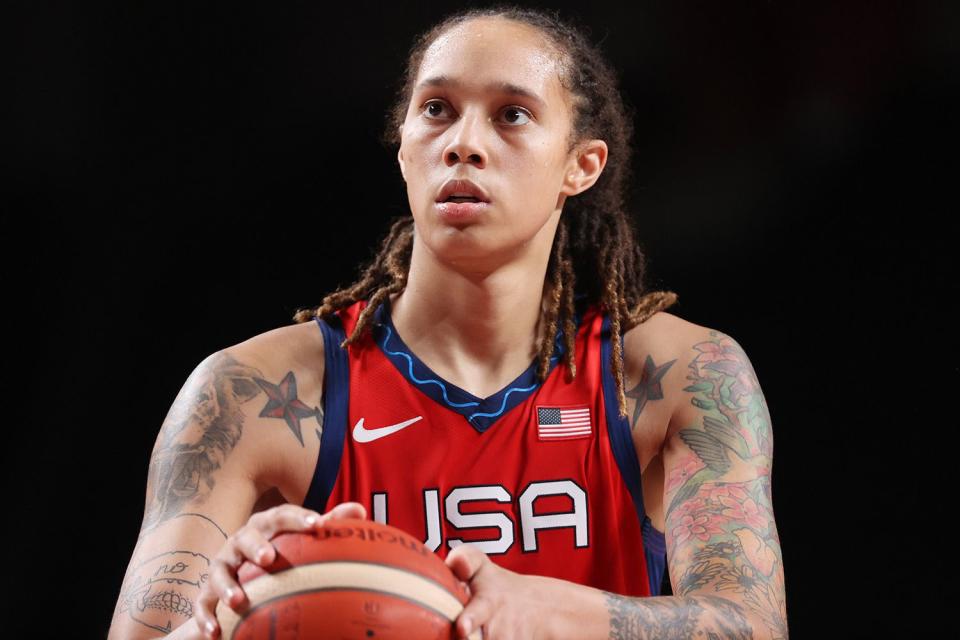Understanding Brittney Griner: Is Brittney Griner Transgender?
In recent years, the world of sports has seen a significant shift towards inclusivity and acceptance of diverse identities. Among those at the forefront of this conversation is Brittney Griner, a professional basketball star whose achievements and experiences have sparked discussions about gender identity and representation. With her powerful presence on and off the court, questions surrounding her identity, specifically, "is Brittney Griner transgender?" have gained prominence. As society becomes more open to discussing the complexities of gender identity, it's essential to approach these conversations with sensitivity and respect. Griner's journey has not only inspired many but also highlighted the challenges faced by individuals who do not conform to traditional gender norms.
Griner's story is one of resilience, and her identity has become a focal point in discussions about representation in sports. As a Black, queer woman in a predominantly heterosexual and cisgender arena, she has bravely shared her experiences. Understanding whether Brittney Griner is transgender goes beyond labels; it's about recognizing her as a person who challenges societal norms and advocates for LGBTQ+ rights. This article will delve deeper into her biography, identity, and the impact she has made both on and off the court.
Through examining her background, achievements, and the conversations surrounding her identity, we can gain a more profound understanding of who Brittney Griner is and the significance of her journey. So, let's explore the question: Is Brittney Griner transgender?
Who is Brittney Griner?
Brittney Griner is an American professional basketball player known for her exceptional skills on the court. Born on October 18, 1990, in Houston, Texas, she has made significant contributions to women’s basketball, both at the collegiate and professional levels. Griner stands at an impressive 6 feet 9 inches tall, making her one of the tallest players in the sport.
Biography and Personal Details
| Attribute | Details |
|---|---|
| Name | Brittney Griner |
| Date of Birth | October 18, 1990 |
| Height | 6 feet 9 inches |
| Position | Center |
| College | Baylor University |
| WNBA Team | Phoenix Mercury |
| Achievements | Two-time Olympic Gold Medalist, WNBA Champion |
Is Brittney Griner Transgender?
The question of whether Brittney Griner is transgender is a complex one. To date, Griner has identified as a member of the LGBTQ+ community but has not publicly identified as transgender. She has openly discussed her sexuality and has been an advocate for LGBTQ+ rights, but discussions surrounding her gender identity specifically are nuanced and should be approached with care.
Understanding Gender Identity
Gender identity is a deeply personal and often complex aspect of an individual’s experience. It refers to how one perceives themselves and how they identify, which may or may not align with the sex assigned at birth. In Griner's case, she has identified as a woman and does not publicly identify as transgender.
- Exploring Mvk Movie Point A Hub For Film Enthusiasts
- Emotional Farewells The Aubreigh Wyatt Goodbye Letters
What Does Brittney Griner Say About Gender Identity?
Brittney Griner has been open about her experiences as a queer woman and has spoken out against discrimination based on sexual orientation. In interviews, she has emphasized the importance of being true to oneself and has encouraged others to embrace their identity. Griner's advocacy work has focused largely on LGBTQ+ rights, particularly in sports, where representation and acceptance have historically lagged behind.
Why Is Brittney Griner's Identity Important?
Griner's identity is significant not only because she is a successful athlete but also because she represents a growing movement towards inclusivity in sports. Her visibility as a queer athlete challenges stereotypes and encourages dialogue about diversity in the athletic community. The question, "is Brittney Griner transgender?" opens up a broader discussion about the challenges faced by athletes who do not conform to traditional gender expectations.
The Impact of Brittney Griner's Advocacy
Through her advocacy work, Griner has become a role model for many individuals within and outside the LGBTQ+ community. Her efforts have helped to raise awareness about the challenges faced by marginalized groups in sports, and she has used her platform to push for positive change. By being open about her identity and experiences, Griner has contributed to a more inclusive environment in athletics.
What Can We Learn from Brittney Griner's Journey?
Brittney Griner's journey teaches us the importance of authenticity and acceptance. Whether or not she identifies as transgender, her story is a powerful reminder that everyone's experience with gender identity is unique. Griner's willingness to be open about her life encourages others to embrace their identities and fosters a culture of understanding and compassion.
Conclusion: Is Brittney Griner Transgender?
In conclusion, the question of whether Brittney Griner is transgender invites us to explore deeper themes of identity, representation, and inclusivity. While she has not identified as transgender, her experiences as a queer woman in sports have been invaluable in advocating for LGBTQ+ rights. As we continue to celebrate her achievements and contributions to basketball and society, it is crucial to respect her identity and the choices she makes regarding how she wishes to be represented. Brittney Griner’s legacy is not solely defined by her gender identity; rather, it is shaped by her courage, talent, and unwavering commitment to authenticity.
Article Recommendations



Detail Author:
- Name : Prof. Donnell Pfeffer
- Username : feest.cristian
- Email : waters.llewellyn@yahoo.com
- Birthdate : 1984-11-20
- Address : 32302 Jeanie Cove South Michael, KS 20401
- Phone : +1-720-591-8593
- Company : Glover Group
- Job : Nuclear Monitoring Technician
- Bio : Dolore neque nihil harum vero ad accusamus. Quam sed quidem atque et ullam aut fugit veritatis. Ut enim ipsa vel nemo. Eum consequatur aut laudantium non sint ea.
Socials
facebook:
- url : https://facebook.com/jewel.hegmann
- username : jewel.hegmann
- bio : Eos pariatur aliquid voluptates magni suscipit sequi aliquam.
- followers : 4075
- following : 2967
instagram:
- url : https://instagram.com/hegmannj
- username : hegmannj
- bio : Consequuntur commodi occaecati unde. Quis perspiciatis explicabo eaque quo.
- followers : 877
- following : 1261
twitter:
- url : https://twitter.com/jhegmann
- username : jhegmann
- bio : Unde voluptatem molestiae velit cumque ut perspiciatis est. Inventore consectetur quaerat ipsam maxime quae aliquid et repellat. Optio id nesciunt sit ut.
- followers : 3625
- following : 1415
linkedin:
- url : https://linkedin.com/in/jewelhegmann
- username : jewelhegmann
- bio : Sed et aut ex dolorum qui mollitia.
- followers : 2422
- following : 1468
tiktok:
- url : https://tiktok.com/@jewel_dev
- username : jewel_dev
- bio : Velit iste voluptas cum qui est quia quae.
- followers : 6811
- following : 1503